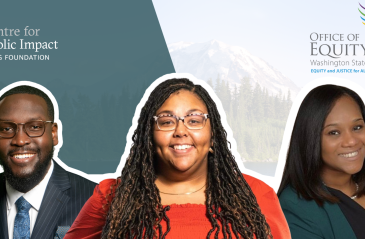
Five things we recently learned about difficult conversations

.@CPI_foundation interview @metecoban92, CEO of @MyLifeMySay, a charity seeking to empower young children to participate in #democracy
Share articleYouth-led, non-partisan @MyLifeMySay runs #DemocracyCafes, develops case studies & engage young people w/ #politics, esp during #COVID19
Share articleYoung people are concerned about the future, their families' finances & that the #newnormal will not encompass young voices - @MyLifeMySay
Share articleWe put our vision for government into practice through learning partner projects that align with our values and help reimagine government so that it works for everyone.
Mete Coban (MBE) serves as a councillor in the Borough of Hackney, and is the founder and CEO of My Life My Say (MLMS); a youth-led non-partisan charity based in the United Kingdom on a mission to empower young people to participate in democracy. Ensuring young people across the UK have a voice in the policy-making process has been a passion of Mete's for years, and MLMS runs a number of programmes that connect young people to the big issues of our time. It also provides a pathways for decision makers to engage with these groups up and down the country. We spoke to Mete about MLMS, his passion for youth participation, and why he felt it was so important for government to build a productive relationship with young people in the midst of the COVID-19 pandemic.
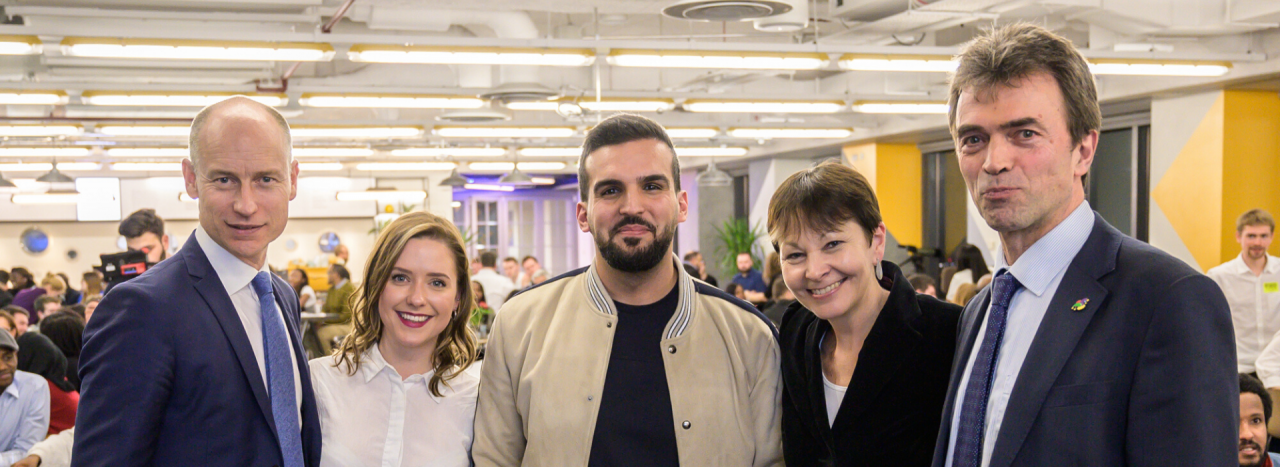
“In one way it was simple,” Mete explained when we asked him about why he founded MLMS, “[As a young person] growing up in Hackney, I felt neglected and that my voice was not being heard [...] this led me to create a space where people can have conversations without having to attach themselves to a [political] view, where people could come together to talk about different views and share”. “I believe if we really want to address inequality in the UK, we need to do this through policy that is co-designed with those who have lived through the worst conditions of that challenge to enable us to truly understand and empathise with the situation.”
“For a long time now, young people have been overlooked in decision-making, and as we have seen, talking to them and allowing them to say what really matters is so important when designing policy that impacts the lives of young people” Mete told us.
"At MLMS, we try to make sense of the data to better understand the demographics and access groups that are not usually represented. We see it as our mission to ensure that all voices are heard".
“Most major decisions of our lifetime - Brexit, the COVID-19 response, climate change etc. - will have a profound impact on the lives of young people. Therefore, building a stronger relationship between young people and decision-makers to enable more fruitful co-designing of policy is our ultimate goal.”
MLMS discovered early on that political engagement from younger populations was restricted by the lack of education on how democracy actually works. Many young people are extremely passionate about a number of issues, but when it came to engagement it was difficult for them to understand the system, which avenues to pursue, and politicians' roles as capable of solving their challenges. “This is a big barrier for many young people seeking a voice in our democratic system” Mete told us.
“We've also seen a severe decline in trust of politicians amongst younger populations. Many promises have been broken and there is a growing mistrust in the ruling parties of our day. Politicians are also not usually representative of the communities they seek to serve - there are too few women/BAME/LGBT candidates for instance. When young people look at parliament/ local councils and it doesn't look and sound like them, they do not always feel comfortable expressing their views.”
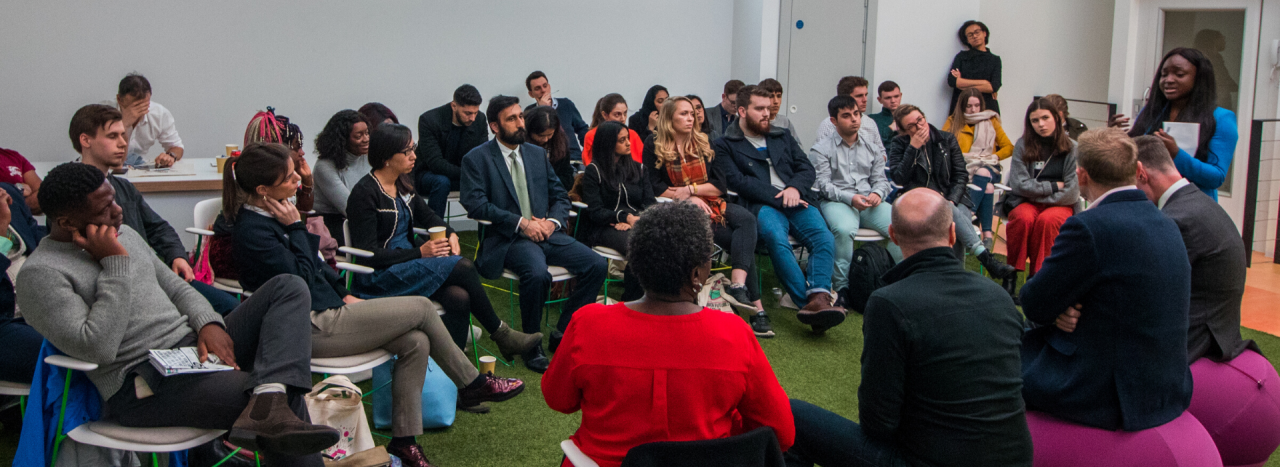
Across all party groups, young people feel like they lack inspiring leaders. Mete told us “On a recent trip to the USA, I was made aware of small town community organisers who mobilised for President Obama during both electoral campaigns. I heard stories about whole families who would wait 3 hours outside of the polling station to vote. His campaign was a remarkable grassroots led effort. We don't have this in the UK - our leaders are reactive not visionary. Voting in the UK becomes a test between characters and is very binary (i.e. Boris vs. Labour Party)”.
We asked Mete the ultimate question: how could the UK government be better in championing the voices of young people? “It feels to me we need to move beyond consultation into co-design.” Mete said. “But in order to do this, communities need to set the framework, be involved in the design and consultation - rather than coming in at the end of the process to approve policies.” This means we must question our current processes. Mete emphasised that “there is a big question of how representative policy making processes currently are.”
“Coronavirus response is an opportunity for us, as a nation, to relook at age old challenges. The crisis has shone a light on vulnerable groups and provided the urgency necessary to deal with long standing challenges. Involving these groups in the policy design process will be critical to the success of any future policy”
“At MLMS we've learnt the best ways to engage young people in these conversations, and some of the pitfalls of misled efforts. For example, many government initiatives have had youth boards in place, but this is a temporary measure. What we mean by co-design would involve a youth board being truly representative and that the people who participate in the board have a lived experience of the service that you're trying to deliver (i.e. homelessness should include those who have experienced homelessness and those at risk)."
"At the point at which you're creating policy, you need to share power - young people should be involved in setting the scope".
Mete also told us about one project that MLMS was running. In Hackney, the young black men's project directly engages with groups affected disproportionately by school exclusion. This included working with organisations in the arts to have spoken word sessions, surveys and other informal data channels. “By running projects with specific groups and allowing them to set the agenda, we are recognising that different groups and individuals have varying needs and communicate in different ways.”
At CPI, we often found that when we spoke with young people as part of our Finding Legitimacy project and continued conversations, many felt that the government dipped in and out of their lives. We asked Mete how the government can engage young people long term: “To ensure sustained engagement, you need to ensure that there is a clear outcome for young people.” he said. “You need to articulate what you hope the output to be for them. In MLMS's democracy cafés we find that communicating what outcomes will be present, opening up and sharing their views gives them confidence to come and share that view. It is demotivating when what you share doesn't go anywhere."
"Encouraging further sustainable engagement is about committing to outputs together with young people and holding up your end of the bargain".
Lastly, we asked Mete about how MLMS learn from their programmes about what young people think and feel. “We're very careful to make sure we are not understood as an organisation that speaks for young people.” Mete said. “I'm 27, and not representative of those who participate in our democracy cafes. We do a lot of self-reflection and would never claim to speak for the participants in our programmes.”
“How do we know we're affecting change? We learn as we go and let them tell us what is working, rather than us dictate to them. For instance:
In our Democracy Cafes, we measure changes in attitudes, behaviours & knowledge, and try to understand whether our activities enable a better understanding about policy decision-making processes. Are they more likely to vote? Do they understand democracy tools better?
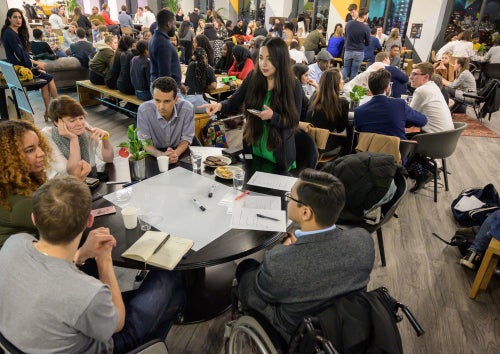 Democracy Cafe
Democracy Cafe
We develop case studies with participants to understand whether their attitudes have changed. We continuously iterate the design of our democracy cafe; they change depending on feedback, geography etc.
In our Young Leaders programme, we select 20 young people to regularly help shape MLMS activities. Through co-designing, we're continuously learning & evolving our engagements to make sure our participants are involved in all stages.
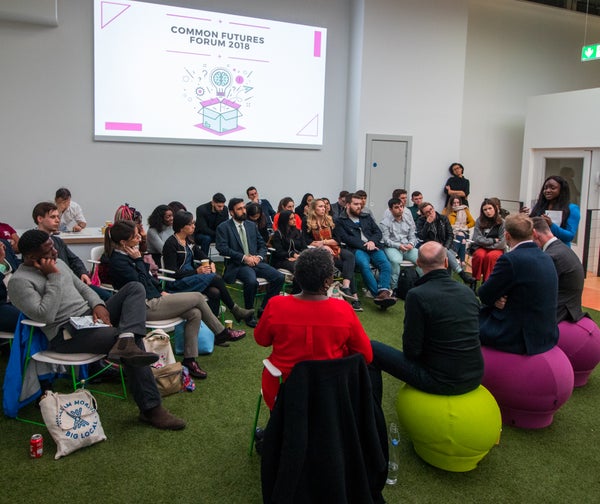
“During this crisis, once again, there has been a lack of young people's voices in the public debate. As we are running our “Quarantine Question Time” sessions we're learning more about what they are concerned about. The four main things I have heard from them are:
There is a growing amount of information and misinformation that makes young people concerned about their futures, creating uncertainty about careers and livelihoods. Coupled with the challenge of social isolation, we're seeing a growing number of young people cite mental health as a key concern.
We're seeing many people worried about their, or their families', financial wellbeing. Many are feeling the immediate impact of the crisis by being furloughed, having reduced hours of work, or are still in employment with a high degree of uncertainty.
There is growing concern about how young people are being portrayed in the media. For example, not adhering to social distancing measures. Stories of young people rallying together to help their communities, or innovating to meet a critical need, is always a deprioritised story.
Many think that the new normal, post-crisis, will not encompass the voices of young people. What will the future of schooling look like? What will be the impact on the economy and how will this hit young people entering the job market? When we tackle the big questions, will young people be asked to participate? Will they be listened to?”
“As time has gone by there is a growing frustration amongst young people: government not being able to speak to clear facts and figures, a lack of clarity on how long this will last, and a mistrust in the level of detail being communicated” Mete described. This led us to ask; what could the government do in their response to change this and ease worries raised by young people?
“It's tough” Mete acknowledged. His own experience of handling the COVID-19 response as a leader within a local council has enabled empathy with the challenges governments are facing at this time. For example, the reality of administering funding to local businesses has been an area of growing frustration in Hackney. “We have received over 5000 applications for support but the centralisation of this money has made it difficult to get the funding to the businesses that need it most. There is an ongoing tension between being collaborative and showing a united front, and calling out where you think the system is not optimised for effectiveness. This can be tricky to navigate.”
However, Mete believes in the importance of collaborating with other councils. “Some of the best work has been from collaboration through councils and our work with the local government association, as a joined up force that tries to represent some of the most vulnerable groups in the country.”
“I hope that we can acknowledge where society is failing, and ask the most important questions to ensure that we come out in a better place.” Mete concluded. “This is an opportunity to create positive change. How can we use this situation to further the voices of young people? That should be our main question.”
#CPIListens
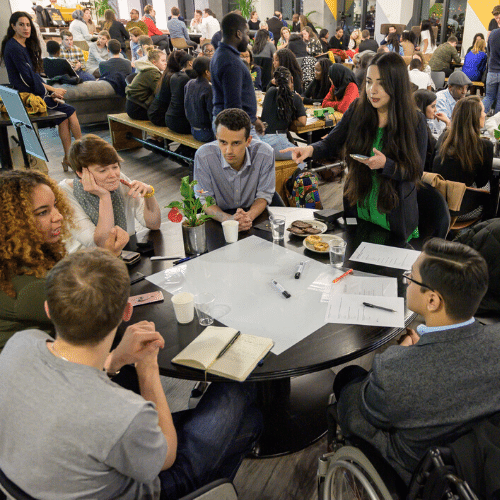
Have the structures and culture you work within enabled a better response to the crisis, or do we need to consider what should be changed as we begin to look ahead?










